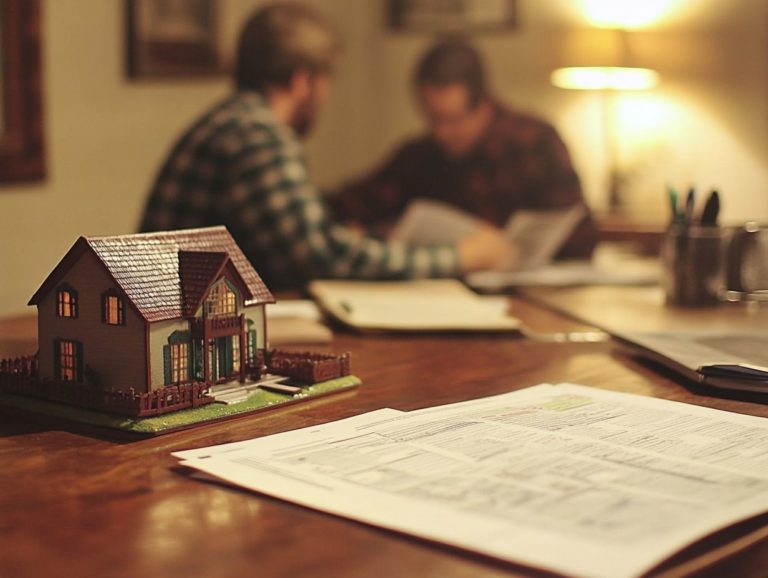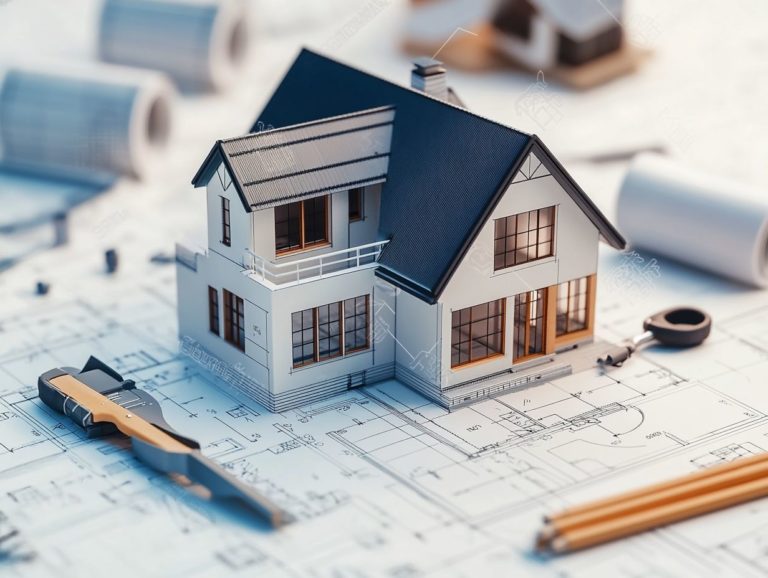5 Things to Know Before Buying Home Insurance
Buying a home is one of the most significant investments you’ll ever make. It’s vital to protect that investment with the right insurance.
The world of home insurance can feel overwhelming, but understanding your options is essential for securing the best coverage tailored to your needs.
This article explores important considerations, including various types of coverage, money-saving strategies, and how to navigate the claims process.
Equip yourself with the knowledge needed to make informed decisions and confidently protect your home.
Contents
- Key Takeaways:
- 1. Understand the Different Types of Home Insurance Coverage
- 2. Determine the Value of Your Home and Possessions
- 3. Research the Insurance Company and Their Reputation
- 4. Consider Additional Coverage Options
- 5. Review and Update Your Policy Regularly
- Why Is Home Insurance Important?
- Frequently Asked Questions
- What are the five most important things to know before buying home insurance?
- What does home insurance typically cover?
- What are the factors that can affect the cost of home insurance?
- What is the difference between replacement cost and actual cash value?
- What are some common exclusions in home insurance policies?
- What steps should I take before buying home insurance?
Key Takeaways:
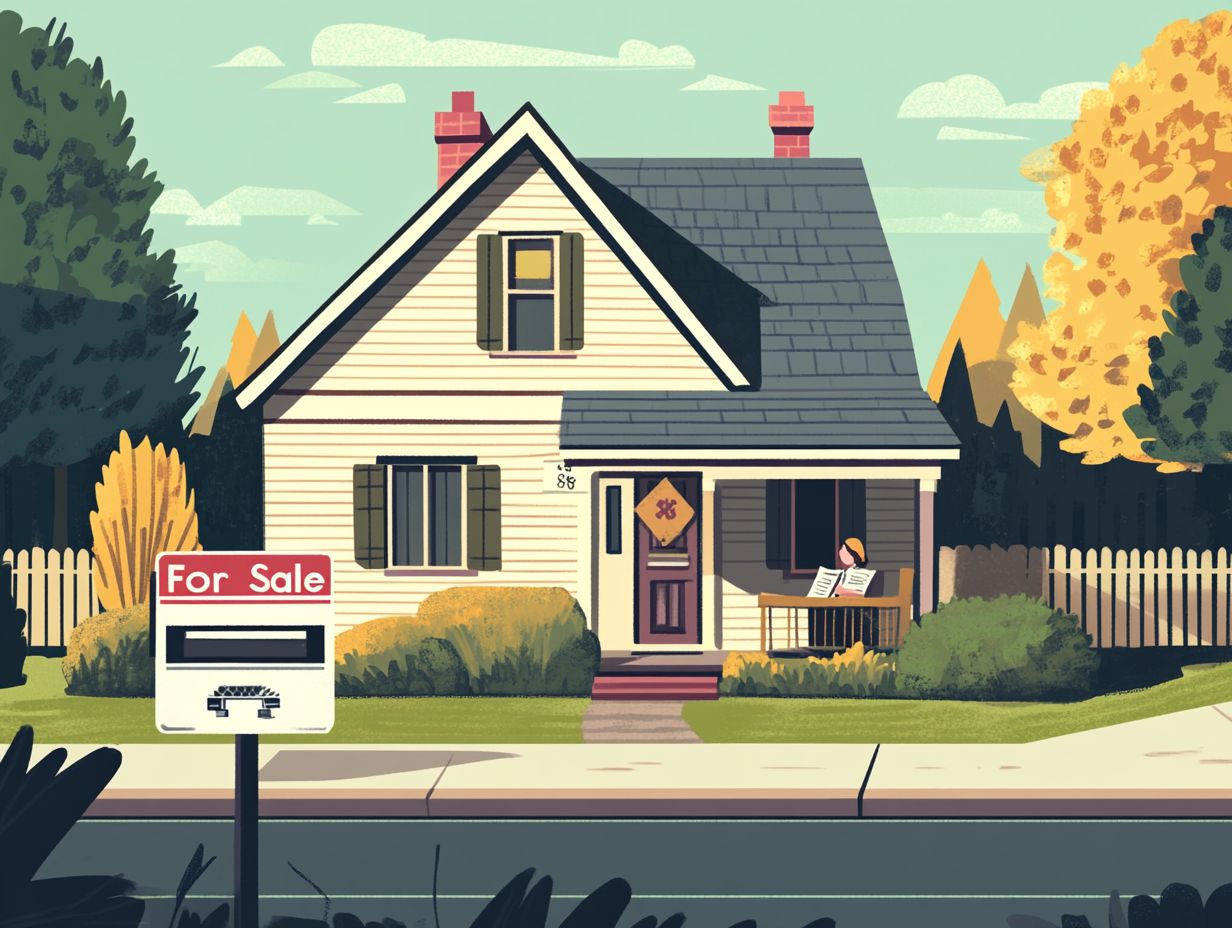
Understand the different types of home insurance coverage before making a decision.
Determine the value of your home and possessions to ensure you have enough coverage.
Research the insurance company and their reputation to ensure they can provide reliable coverage.
1. Understand the Different Types of Home Insurance Coverage
Knowing the various types of home insurance coverage is crucial for homeowners. It ensures that your property and belongings are well-protected from risks, ranging from natural disasters to property damage and liability claims. Additionally, avoiding common pitfalls is essential; check out these 7 mistakes to avoid when buying home insurance for valuable insights.
Homeowners insurance typically includes dwelling coverage, personal property coverage, and liability coverage. Each type is designed to protect your home and belongings in unique ways.
Don t overlook additional living expenses coverage. This is especially important if your home becomes uninhabitable due to covered damages, as it can help cover your temporary housing costs.
Dwelling coverage acts as your safety net for your home s structure, protecting everything from walls and roofs to built-in appliances. Personal property coverage extends protection to your belongings within the house like furniture, electronics, and clothing.
Liability coverage is critical. It shields you from lawsuits that may arise from injuries or property damage occurring on your premises. Also, consider additional living expenses coverage, as it can significantly alleviate financial stress by covering hotel stays and meals during major repairs.
Know your coverage limits and exclusions to avoid surprises! You may need specialized policies for natural disasters like floods or earthquakes that aren’t typically included.
To create the best coverage strategy, review your claims history. This will help identify potential risks and guide you in choosing the right types of coverage for your needs.
2. Determine the Value of Your Home and Possessions
Figuring out the value of your home and possessions is a vital step in obtaining homeowners insurance that truly meets your coverage needs. This protects you from potential out-of-pocket expenses.
Make a detailed list of everything in your home to identify high-value items. This will help ensure that your dwelling coverage limit aligns with the current market value, optimizing your replacement cost coverage.
To effectively perform a home inventory, start by going through each room systematically.
- Document your items with photographs or video recordings.
- Be sure to note down serial numbers whenever possible.
This meticulous approach allows you to accurately value items such as electronics, jewelry, and collectibles.
Understanding the difference between replacement cost what it takes to replace an item at today s market price and actual cash value, which factors in depreciation, is crucial to avoid costly mistakes!
This difference can significantly impact your insurance premiums and overall decision-making regarding coverage.
By keeping thorough records, you ll ensure that any claims you file are well-substantiated. This will facilitate smoother interactions with your insurance provider and potentially speed up payouts.
3. Research the Insurance Company and Their Reputation
Start by researching potential insurance providers. Their reputation can greatly influence your experience with quotes and claims.
Examine their financial stability and read customer reviews. A good claims process is essential for peace of mind.
Check their financial ratings from reliable agencies. This insight is crucial for understanding their claim-honoring ability.
Look into customer satisfaction surveys. Discover how others have fared in claim resolutions.
Understand the importance of claims processing times. A lengthy process can add unnecessary stress.
Get multiple insurance quotes. Compare coverage options and premium costs for the best deal.
4. Consider Additional Coverage Options
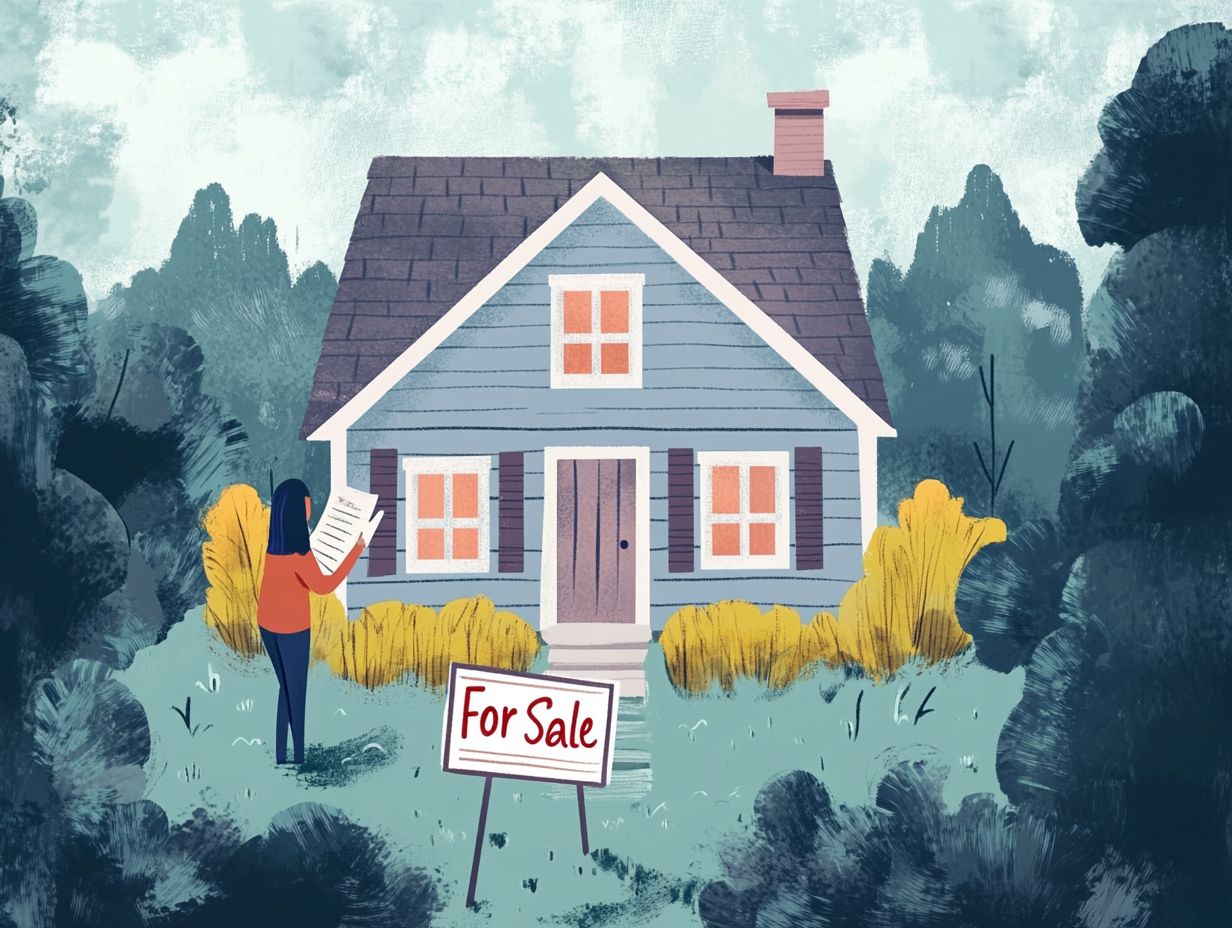
Explore additional coverage options to enhance your homeowners insurance policy. This protects your property against risks standard policies may overlook.
Policy add-ons can boost your coverage, such as equipment breakdown or water damage. Security system discounts can also reduce your premiums.
Consider personal injury liability endorsements. They cover incidents like defamation and provide important legal protection.
Don t forget coverage for additional structures, like sheds or fences. Protecting these investments can increase your property s value.
Act now! Installing monitored security systems can lead to significant discounts on your policies.
5. Review and Update Your Policy Regularly
Review your home insurance policy regularly. This keeps your coverage aligned with your evolving life circumstances and property value.
Conduct an insurance needs assessment. Identify exclusions and make informed decisions on coverage options tailored to you.
This proactive approach safeguards your belongings. It also allows you to consider renovations that may have increased your property’s value.
Stay on top of changes in your personal possessions. If you ve acquired valuable items, you may need additional coverage.
Be aware of local environmental factors and crime rates. This awareness helps tailor your insurance needs effectively.
Why Is Home Insurance Important?
Home insurance is essential for you as a homeowner. It offers financial protection against potential losses from events like property damage, liability claims, and natural disasters. To fully understand your coverage, it’s important to learn what every homeowner should know about insurance. With home insurance, you gain peace of mind in unpredictable moments.
A comprehensive homeowners insurance policy safeguards your investment. It covers additional living expenses while repairs are underway and helps you navigate the often-complex claims process. You can be confident knowing you’re shielded from unexpected costs.
This coverage aids in recovery from unforeseen circumstances and provides vital liability protection if a visitor sustains an injury on your property.
Understanding the details of insurance premiums is just as important. They directly influence the level of coverage available and the peace of mind that comes with it.
Consider how various factors like your location, property type, and personal belongings impact premium rates. By staying informed and proactive about your insurance options, you can follow 5 tips to find the best home insurance provider that offers optimal coverage tailored to your specific needs. This way, you ensure you’re genuinely protected during times of crisis.
What Are the Common Exclusions in Home Insurance Policies?
It’s crucial to understand the common exclusions in homeowners insurance policies. This knowledge helps you avoid unexpected financial burdens when filing claims. To help minimize your costs, consider exploring 5 ways to save on home insurance premiums. Many policies may not cover certain natural disasters, like floods or earthquakes, unless you purchase specific coverage, such as flood insurance or earthquake insurance, separately.
This gap in coverage can lead to significant out-of-pocket expenses in the event of a disaster. Imagine living in a flood-prone area and assuming your standard policy will cover water damage, only to find it’s not included. Most policies also exclude damage from wear and tear, mold, or pest infestations, as these issues fall under your responsibility for maintenance.
To mitigate such risks, consider these steps:
- Explore supplemental insurance options tailored to your unique needs.
- Consult with an insurance agent to understand your specific risks.
- Conduct regular home maintenance to prevent issues that could lead to claims being denied.
How Can You Save Money on Home Insurance?

You can save money on home insurance with just a few smart moves! By taking advantage of discounts available from insurance providers, you can enjoy reduced premiums.
To boost your chances of qualifying for these discounts, maintain a claims-free history, install security systems, and think about upgrading your home.
Comparing insurance quotes is another effective way to uncover substantial savings. Rates can differ dramatically between companies. For instance, bundling your home and auto insurance can unlock additional discounts, leading to impressive cost reductions.
Furthermore, taking proactive measures like installing fire alarms and deadbolts or even upgrading to a smart home security system enhances safety and can lead to even more savings. Many insurers offer incentives for such enhancements, translating into lower monthly payments and greater peace of mind for you as a homeowner.
What Are the Steps to File a Home Insurance Claim?
Filing a home insurance claim involves several crucial steps, and understanding tips for comparing home insurance providers can significantly affect your experience and minimize potential out-of-pocket costs related to property damage.
Start by promptly notifying your insurance provider. Document the damage thoroughly and familiarize yourself with your claims history, which refers to past claims you’ve made. This can streamline the process. You can usually make that initial notification via phone or through your insurance company’s online portal, which many providers now offer for added convenience.
Once you’ve reported the claim, gather documentation such as photographs of the damage, repair estimates, and any relevant receipts. These items will bolster your claim. Maintaining consistent communication with your insurance representative is vital. Keep detailed notes of your conversations and follow up as needed.
Reviewing your coverage terms can significantly influence the outcome of your claim. Understanding what’s included and excluded helps you set realistic expectations and avoid unpleasant surprises along the way.
What Are the Factors That Affect Home Insurance Premiums?
Curious about what affects your home insurance premiums? Let s break it down! Several factors contribute to determining your home insurance premiums, making it crucial for you to understand how your unique circumstances can influence your overall coverage costs.
Key elements include your coverage needs and the location of your property especially if it s in a high-risk area. Your claims history and any security systems you’ve installed also play a significant role. Understanding these elements empowers you to make informed decisions.
For example, homes located in flood-prone regions often face higher premiums. In contrast, properties boasting advanced security systems may qualify for discounts. If you have a detailed claims history, your rates might increase compared to those with a spotless record.
To mitigate these costs, taking proactive measures such as enhancing home security, maintaining a good credit score, and shopping around for competitive quotes can significantly lower your premiums. As a result, this approach provides you with peace of mind and financial relief.
What Are the Most Important Questions to Ask When Buying Home Insurance?
Asking the right questions when purchasing home insurance can profoundly influence the quality of your coverage and your overall satisfaction with the insurance provider. It’s essential to delve into the specifics of your policy, including the provider’s reputation, claims history, recommended coverage, and the process for obtaining quotes. For instance, consider these 8 questions to ask before buying home insurance to ensure you’re making an informed decision.
Be sure to explore critical questions, such as what events your policy covers and whether there are different tiers of coverage tailored to your specific needs. Understanding the coverage limits is vital; it can save you from unexpected out-of-pocket costs should a claim arise.
You should also consider any exclusions that could leave you vulnerable, like flood or earthquake coverage, which often requires separate policies. Understanding the claims process is crucial; knowing how to navigate this procedure can save you time and stress when it matters most.
By taking the time to ask these insightful questions, you can ensure that you select a comprehensive policy that genuinely meets your needs.
Frequently Asked Questions
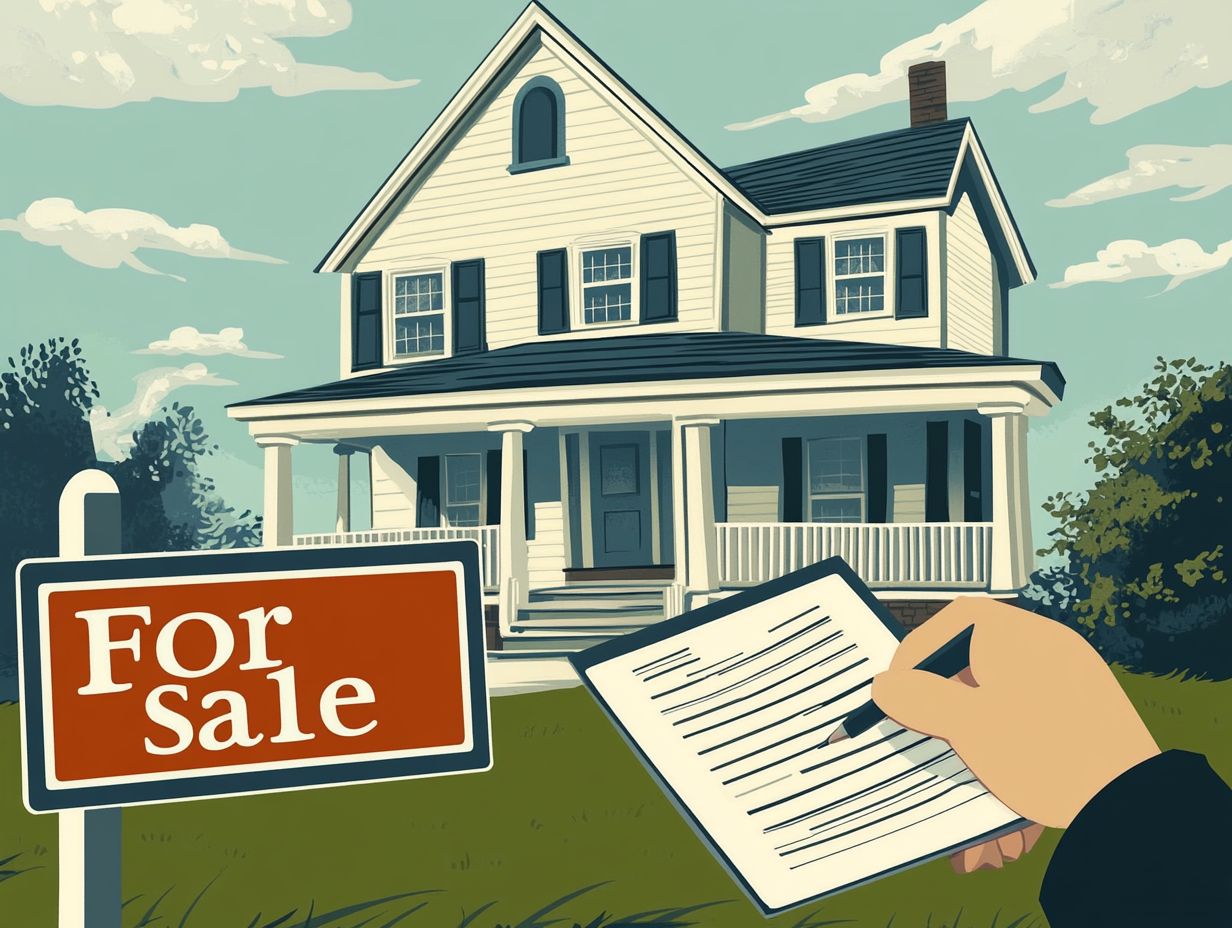
What are the five most important things to know before buying home insurance?
Before purchasing home insurance, it is crucial to understand the coverage, cost, claims process, and policy details. Make sure to review what to know before buying home insurance, and know your home’s value and the type of insurance you need.
What does home insurance typically cover?
Home insurance covers the physical structure of your home, personal belongings, liability protection, and additional living expenses in case of a covered loss. However, coverage may vary depending on the specific policy.
What are the factors that can affect the cost of home insurance?
The cost of home insurance depends on various factors, such as the location of your home, the age of the house, the type of coverage, and the deductible amount (the amount you pay out of pocket before insurance kicks in). Your credit score and claim history may also impact the cost.
What is the difference between replacement cost and actual cash value?
Replacement cost coverage pays for the actual cost of replacing damaged or stolen items without deducting for depreciation. Actual cash value, on the other hand, factors in depreciation and pays for the current value of the item.
What are some common exclusions in home insurance policies?
Some common exclusions in home insurance policies include natural disasters like floods and earthquakes, intentional damage, and wear and tear. It is essential to read the policy carefully to understand what is covered and what is not.
What steps should I take before buying home insurance?
Before buying home insurance, it is vital to assess your home’s value, research different insurance companies, and compare policies and rates. For first-time home insurance buyers, it is also recommended to consult with an insurance agent to ensure you are getting the right coverage for your needs.
Take charge of your home insurance journey today empower yourself with knowledge!


